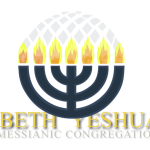What is Messianic Judaism?
Messianic congregations are faith-based communities that exist to foster and encourage an ongoing, living relationship with the G-d of Israel, emphasizing stress the Jewish context of the Gospel of Yeshua (Jesus) the Messiah. Messianic congregations typically employ Jewish forms of worship, use Hebrew in their liturgy and stress the connection of Messiah to the Hebrew Scriptures. By enlisting as many of the features of the synagogue as are consistent with the Messiah’s teaching, Messianic congregations provide a familiar environment for Jewish believers and seekers, many of whom are intimidated, confused, or simply uncomfortable among the trappings of Christian churches.
Messianic congregations teach the basic tenets of evangelical Christianity but do so in a Jewish way, using Jewish liturgy, music, and other aspects of Jewish community life. Messianic congregations are composed of both Jewish and non-Jewish members. Messianic congregations emphasize support for Israel and Israel the Jewish people in general. Non-Jews attracted to Messianic congregations often express a sense of being “called” to be part of one. Others express the thought that they receive a form of teaching they have found lacking elsewhere.
Messianic Jewish families often turn to Messianic congregations because they help children understand what it means to be a Jewish believer in the Messiah and help kids feel linked to a faith community larger than their immediate family. It would be easy for Jewish children to become disconnected from their Jewish heritage in a Christian church. Similarly, many interfaith couples find that a Messianic congregation is the most comfortable home for both spouses, especially when it comes time to raise children.
Messianic congregations also emphasize the celebration of the Jewish festivals, which often become an event for members of the wider Jewish community who do not know the Messiah. These outreaches allow Jewish believers to talk with their fellow Jews and answer their questions about how a person can believe in Messiah Jesus and still be Jewish. Connection with Jewish life through their Messianic congregations often eases such concerns.
